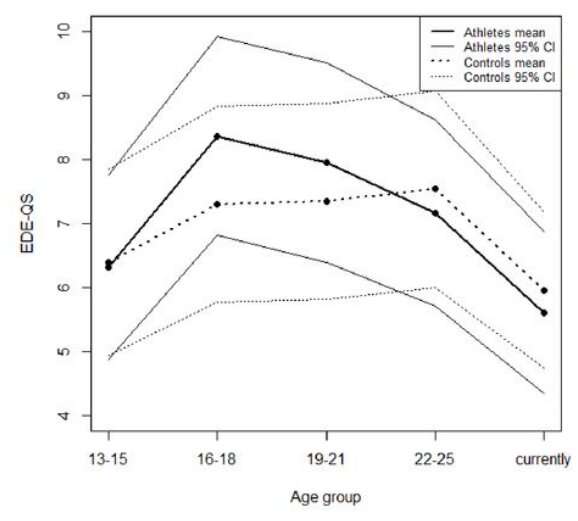This article has been reviewed according to Science X's editorial process and policies. Editors have highlighted the following attributes while ensuring the content's credibility:
fact-checked
trusted source
proofread
Disturbances in eating behaviors and menstrual function can jeopardize careers of female athletes

A recent study from the Faculty of Sport and Health Sciences at the University of Jyväskylä (Finland) shows that disturbances in eating behaviors predicted shorter sports career among women with a competitive sports background in endurance sports.
Women who reported missing three or more consecutive menses for any reason other than pregnancy or hormonal contraceptive use during their sports career were more likely to report that injuries had hampered their career. They also terminated their sports career due to injury more often than other women.
Athletes spend a significant amount of time improving performance. However, sports-related injuries are common in athletes. Injuries can prevent performance improvements or even decrease performance. In some cases, injuries can also contribute to the termination of an athletic career.
Previous studies have shown that disturbances in eating patterns and body image can also negatively influence athletic development. In addition, female athletes can present with menstrual dysfunction. A current study investigated if eating behaviors and menstrual dysfunction during a sports career were linked with a sports career length or injuries.
"We found a relationship between disturbances in eating behaviors and a shorter sports career," says Suvi Ravi, the corresponding author and a Ph.D. Researcher at the Faculty of Sport and Health Sciences. "This finding is of interest and further research is needed to explore mechanisms behind this relationship."
The observed association between the absence of menstruation and injuries supports the previous assumption that menstrual dysfunction can be linked with a sports career in a harmful way.
Early detection of eating problems is needed
The present study also found that menstrual dysfunction and retarded menarche were more common among athletes than non-athletes, but no differences were found in eating behaviors between the groups. It was, however, observed that participants who reported disordered eating behaviors in adolescence or young adulthood reported disordered eating more often also in adulthood.
"It is important to pay attention to the development of adolescents' healthy attitudes toward eating," explains Ravi. "In addition, disturbances in eating behaviors should be intervened in as early as possible to prevent the continuation and progression of symptoms."
The findings of this study help athletes and their coaches understand the significance of healthy eating behaviors and menstrual function on an athletic career as well as on life after the sports career.
"Eating disorders as well as other, milder disturbances in eating behaviors are always harmful to the health," explains Ravi. "An absence of menses without an apparent reason can be a result of energy deficiency. These problems are still common in sports, and they should be taken even more seriously. Health and performance cannot be separated from each other. In the long term, they always go hand in hand."
The study, published in BMJ Open: Sport & Exercise Medicine, was conducted on 100 women with an endurance sports background who were invited to the study based on their success in sports between the years 1990 and 2005. In addition, 98 similar-aged women without a competitive sports background participated in the study. They were randomly selected from the population registry. At the time of the study, the participants were 30 to 53 years of age. Data were collected with a questionnaire.
More information: Suvi Ravi et al, Eating behaviours, menstrual history, and the athletic career: a retrospective survey from adolescence to adulthood in female endurance athletes, BMJ Open: Sport & Exercise Medicine (2023). DOI: 10.1136/bmjsem-2022-001489. bmjopensem.bmj.com/content/9/1/e001489

















